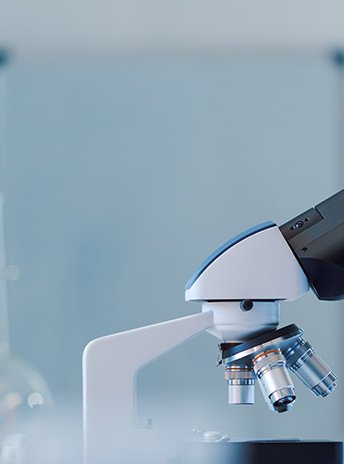The Biomedical Sciences Laboratories I and II are part of the Faculty of Biomedical and Health Sciences facilities at the Universidad Europea de Madrid. These labs have been designed as a space for basic research and to allow students to explore topics in a holistic manner during their first years of studies.
The labs are designed for students to put theory into practice and internalise the theoretical content they have learned, simultaneously offering them a real insight into the type of work carried out in both research and clinical laboratories.
The lab features the necessary equipment for students to carry out practical work for different bachelor’s and master’s programmes. As a multifunctional laboratory, it is also a training space for professors, which other institutions can visit.
The laboratories and other faculty facilities are available to professors and students in the fields of: health (medicine, dentistry, nursing, biotechnology, pharmacy, veterinary medicine, nutrition and psychology), sports (sports and physical activity, and physiotherapy) and social sciences (criminalistics), for both undergraduate, postgraduate and advanced vocational training students.
These facilities the necessary equipment, materials and inventory to carry out all scheduled activities.
- Double workstations: 13 in the C-205 and 14 in the C203. These are equipped with two optical microscopes per station and a locker with the necessary glass material for the most common activities.
- Audiovisual system: with four TVs and a screen with a projector connected to a computer and an optical microscope.
- Extraction system: with a total of three gas hoods that guarantee safe working with volatile materials.
- Laminar flow hood: used to perform techniques with biological material that guarantees both the safety of the person handling it and a sterile working area that protects the sample itself.
- Waste classification system: that guarantees adequate management of the waste generated during activities and its subsequent disposal in compliance with current regulations.
- Chemical reagents and commercial kits: namely those required for the techniques carried out in these spaces, containing all the information necessary for their proper storage, use and disposal. This guarantees the safety of students, employees and the facilities themselves.
- Microscopy: the lab has enough optical microscopes for students to work individually, as well as a professor's microscope that is connected to the audiovisual system with specific software for image processing. There is a fluorescence microscope and an inverted microscope for viewing more complex preparations, which also allows for image processing. Magnifiers are available for individual use for macroscopic viewing and there is a magnifier for the professor, which is connected to a fluorescence system.
- Collection of biological and histological preparations for microscopy: there are sufficient preparations for individual use.
- Glass material: the labs have sufficient glassware to carry out the scheduled practices.
- Commonly used equipment: including scales, centrifuges, automatic pipettes, medium volume dispensers, culture incubators, water baths, thermoblocks, stirrers, hotplates, pH electrodes, etc.
- Equipment for molecular biology techniques: micropipettes, incubators, thermocyclers, electrophoresis systems, transilluminators, ChemiDoc system.
- Equipment for carrying out ELISA techniques: the equipment has a software system for analysing data.
